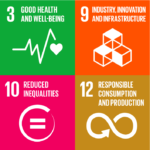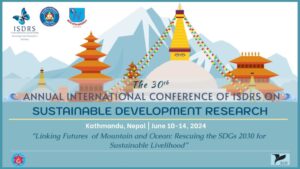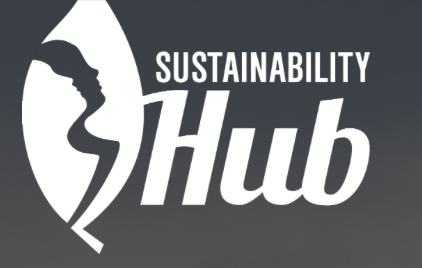Past Conference
Kuala Lumpur, 2023
Track chair: Simon Lockrey, Associate Professor, RMIT, Australia.
Design for Sustainability - grew to 22 papers presented over 5 sessions at ISDRS Malaysia 2023. So that's great news! Topics were wide and varied, covering design of products, textiles, infrastructure, packaging, services, strategy, architecture, participatory outcomes, and focusing on topics such as consumer perceptions, play, food waste, climate change, bio renewal, regional development, and responsibility. All in all, the role of design was paramount and palpable in sustainability causes across these terrific papers, presented from scholars from the Asia-Pacific, Europe, South America, China, and beyond.
ISDRS 2021
Track chair: Klara Tóthné Szita
Sustainable design of a trigger sprayer suitable to e-commerce market. A case study of design for material reduction, disassembling and recycling
Lucia Pietroni, Jacopo Mascitti, Daniele Galloppo
The presentation was showed by Jacopo and Daniel. They prepared also a full paper.
They investigated the environmental impact of the material reduction, disassembling and recycling with applying LCA method. it was a typical case study of product design following the environmental and economic aspect.
I support the publication at journal.
Design strategies in times of pandemic – a case study of how Covid-19 is visualized in the Nordic countries Sweden, Norway, Finland, Denmark and Island
Karina Goransson, Anna- Sara Fagerholm
The problem was very interesting approach of social innovation. Both of authors spoken. The presentation based on the content and infographic analysis were used during the pandemic. They applied comparative analysis of posters, between Nordic countries’ communication materials. The authors have not showed that taking epidemic related infographics seriously reduced covid 19 infections, although it could have strength the paper.
After the presentation there was interesting discussion about papers and general questions of responsible sustainable production and consumption (SDG’12), why important the ecodesign aspect in the product development. We have spoken about the desing orienting scenarios of the SusHouse project,– it was elaborated twenty years age, and had prepared sustainable strategies towards sustainable household 2050. It is actual today, - how possible decrease the environmental load on based of factor 20, and the 3 pillars of sustainability, while there also measured the consumer attitude, and used future study tools backcasting and future workshop and design orienting scenario methods..
- Messina, Italy, 2018
- Chairs: Astrid Skjerven, Marzia Traverso
The topic met great interest from the conference participants, which was testified by the necessity to create 3 different track sessions to give room to all speakers. There were 13 presentations in total. The contributions covered different sector such as automotive, fashion and building. Even if the focus was sustainability the most of presentations were about environmental pillar of sustainability, only a couple of them include the life cycle costing (and consequently the economic pillar). The contributions were different qualitatively from a more superficial qualitative approach to a quantitative and scientific one. Several reflected the gap between the attitudes of stakeholders and the implementation of eco-friendly solutions. Most used quantitative methods and statistics. Some tended to compare incongruent parameters. Provided further development some of them might become useful tools in building and rebuilding processes. By the way, the importance of this session is very high as well as the necessity to expand to all three pillars of sustainability.
Next Conference: Track 5b
Keep up to date with developments of ISDRS 2024 Track 5b here
“Linking Futures of Mountain and Ocean: Rescuing the SDGs 2030 for Sustainable Livelihood“
Who are we?
Knowledge Resources
State of the Art:
Peruse recent articles/ chapters below from leading design for sustainability (DfS) scholars, with particular sector-based foci:
Vicky Lofthouse (product) - Using a Product's Sustainability Space as a Design Exploration Tool (2019); and Human-Centred Design of Products And Services for the Circular Economy – A Review (2018)
Kate Fletcher (fashion) - Local Food Initiatives and Fashion Change: Comparing Food and Clothes to Better Understand Fashion Localism (2018); Fashion, Sustainability, and the Anthropocene (2017); and Craft of Use - Post Growth Fashion (2016, whole book)
Anna Meroni (social design/ innovation) - Crossing the Boundaries of Participation, Activism, Paradigm Change, and Incubation: On the Edge of Design for Social Innovation and Sustainability (2019, a section in Integrative Design); Design for Social Innovators (2018, chapter in Design Roots); and A Socio-Technical Approach to Design for Community Resilience: A Framework for Analysis and Design Goal Forming (2015)
Nicola Morelli (service design) - Measuring the Change Towards More Sustainable Mobility: MUV Impact Evaluation Approach (2019); Innovation and Design (2019, chapter in Innovation Capacity and the City); and Bringing Service Design to Manufacturing Companies: Integrating PSS and Service Design Approaches (2018)
Carlo Vezzoli (product service systems i.e. PSS) - System Design For Sustainable Energy For All: A New Role For Designers (2018, chapter in Designing Sustainable Energy for All); Product-Service System Design for Sustainability (2017); and New Design Challenges to Widely Implement 'Sustainable Product–Service Systems' (2015)
Karli Verghese, Helen Williams, and Rene Wever (packaging) - The Importance of Packaging Functions for Food Waste of Different Products in Households (2019); Packaging Strategies That Save Food: A Research Agenda for 2030 (2018); and Packaging's Role in Minimizing Food Loss and Waste Across the Supply Chain (2015)
Recent books of interest include; Product Design and Sustainability: Strategies, Tools and Practice by Jane Penty for Routledge (2019); Design for a Sustainable Culture. Perspectives, Practices and Education by Astrid Skjerven et al. for Routledge (2018); and the Routledge Handbook of Sustainable Product Design by Jonathan Chapman et al. for Routledge (2017)
Recommended Sources:
Historically significant work/s that reflect the development of DfS as a scholarly area:
- Check out Victor Papanek, an early critic of the design discipline as a contributor to the ecological crisis (here is a recent text on him from our ISDRS DfS Track Chair; Astrid Skjerven)
- Check out early DfS innovation lab Rocky Mountain Institute and their research and case studies.
- Check out the early work of Han Brezet and Delft DfS research teams (i.e. research looking at LCA, DfS, and service design....with more recent work from Casper Boks, Jan Carel Diehl, and Nancy Bocken)
- Check out the work of Chris Ryan and the formative DfS research at the RMIT Centre for Design through the EcoRedesign program (See the special issue on the Centre for Design in the journal Design Archives edited by ISDRS board member Simon Lockrey and Karli Verghese, and the significant early book Design + Environment: A Global Guide to Designing Greener Goods by Helen Lewis et al. for Taylor Francis (2001)).
Please also visit these relevant organizational links for DfS connected material/ networks:
- The Learning Network on Sustainability: For excellent DfS learning resources, championed by Professor Carlo Vezzoli at Politecnico di Milano
- The DESIS network: For projects, research and learning at the nexus of DfS and social sustainability, championed by Professors Ezio Manzini and Anna Meroni at Politecnico di Milano
LinkedIn Discussions in our Topic group 5b
Recent discourses on the ISDRS LinkedIn discussion group:
Routledge & Earthscans' Sustainability Hub
Find useful essays, free books and articles, case studies and more at our partner's website:


